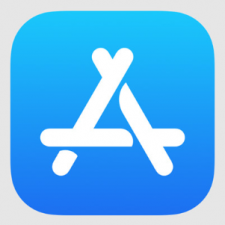Apple rolls out Unity-like Runtime Fee as it seeks to outrun new EU regulations | Pocket Gamer.biz

Apple has unveiled a host of new rules for its App Store in the European Union as it seeks to comply with the Digital Markets Act that aims to challenge the market dominance of big tech companies.
As part of its attempted adherence to new EU rules, Apple will allow third-party app stores and alternative payment options on iOS.
Key changes to Apple’s terms in the EU include lowering its commission from 30% to 17% – or 10% for some developers – on in-app purchases.
Publishers that want to continue using Apple Pay would be required to pay an additional 3% fee. Those that want to use an alternative payment method or link to an external website will pay no additional fee.
However, to take advantage of these new terms (regardless of payment option), Apple will add what it calls a ‘core technology fee, while will charge €0.50 for each first annual install per year over one million downloads for installs from the App store and/or an alternative marketplace.
The fee is reminiscent of Unity’s controversial Runtime Fee, which also charges for downloads rather than revenue share. Unity eventually altered its proposed terms – but did not remove the runtime fee – while CEO John Riccitiello departed the company within a month after the initial announcement following a backlash.
A calculator that provides estimates for the new fees can be found here.
Should any publisher or developer not want to adhere to these new business terms, they can continue to choose the existing revenue share deal.
The changes are set to go in effect in March.
Apple doubles down on ‘privacy’
Apple said it will still require reviews of all apps, regardless of their distribution channel, through its new ‘Notarization’ scheme. This will include a combination of automated checks and human review, with the stated goal of ensuring “platform integrity and protecting users”.
Apple insisted that privacy remains a key part of the iOS ecosystem and that app tracking transparency will “continue to work with apps distributed outside of the App Store – asking a user’s permission before a developer tracks their data across apps or websites”.
As well as allowing developers to link to an alternative website, Apple said it would let developers inform EU users of promotions, discounts and other deals available outside of their apps.
Alongside the new rules, Apple was keen to notify its users the potential risks of “malware, fraud and scames, illicit and harmful content, and other privacy and security threats” from websites and stores outside of its own ecosystem.
Epic Games CEO Tim Sweeney has been a long-time critic of Apple and Google’s 30% fees. The U.S. Supreme Court recently declined to listen to an appeal from Apple in the U.S. over a long-running dispute between the two companies. The decision upheld a previous decision that Epic had “failed to prove the existence of substantially less restrictive alternatives” to Apple’s system.
However, it did allow developers to link to third-party web links, which Apple was quick to quash with a 27% fee for such transactions.
“Mailcious compliance”
Taking to Twitter, Sweeney claimed Apple’s new rules were “a devious new instance of malicious compliance”.
“They are forcing developers to choose between App Store exclusivity and the store terms, which will be illegal under DMA, or accept a new also-illegal anticompetitive scheme rife with new Junk Fees on downloads and new Apple taxes on payments they don’t process,” he said.
“Apple proposes that it can choose which stores are allowed to compete with their App Store. They could block Epic from launching the Epic Games Store and distributing Fortnite through it, for example, or block Microsoft, Valve, Good Old Games, or new entrants.
“The Epic Games Store is the #7 software store in the world (behind the 3 console stores, 2 mobile stores, and Steam on PC). We’re determined to launch on iOS and Android and enter the competition to become the #1 multi-platform software store, on the foundation of payment competition, 0%-12% fees, and exclusive games like Fortnite.
“Epic has always supported the notion of Apple notarization and malware scanning for apps, but we strongly reject Apple’s twisting this process to undermine competition and continue imposing Apple taxes on transactions they’re not involved in.
“There’s a lot more hot garbage in Apple’s announcement. It will take more time to parse both the written and unwritten parts of this new horror show, so stay tuned.”



